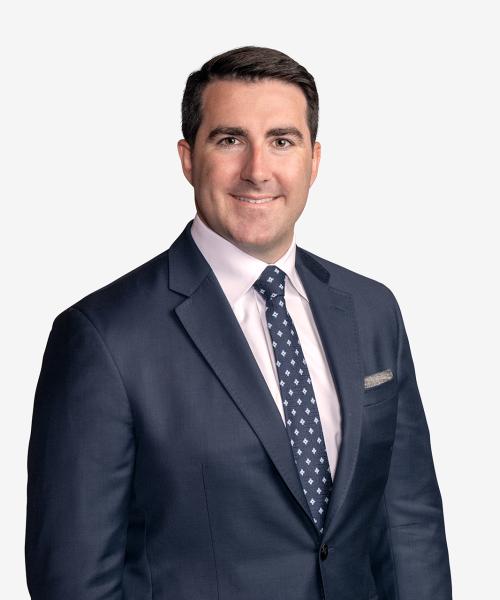Supreme Court Declines to Review Issue of “Objective Falsity” Under False Claims Act
False Claims Act Legal Developments
Supreme Court Declines to Review Issue of “Objective Falsity” Under False Claims Act
On February 22, 2021, the United States Supreme Court denied petitions for certiorari in a case that could have addressed the issue of “objective falsity” under the False Claims Act (“FCA”). By denying the petitions, the Court left in place a split among the circuit courts on whether a successful claim under the FCA requires proof that a claim was objectively false or whether an expert opinion that differs from the judgment of the physician at issue can be sufficient to show that a claim for payment is false.
One of the petitions denied by the Supreme Court was filed by hospice provider Care Alternatives. In the underlying qui tam action, the relators, former employees of Care Alternatives, alleged that the provider submitted false claims by routinely certifying patients for hospice care when the patients were not terminally ill. The relators’ expert examined medical records and determined that, in many of the cases, the documentation did not support certification of terminal illness. Care Alternatives, in response, produced its own expert who testified that a physician could have reasonably concluded that the patients were terminally ill and required hospice care. In deciding what would be sufficient for a claim under the FCA, the Third Circuit ultimately concluded that a certification of medical necessity could be considered legally false if a jury determined that an expert’s review of the same medical records was more persuasive. 952 F.3d 89 (3d Cir. 2020).
The Third Circuit’s opinion departed from the Eleventh Circuit’s opinion in AseraCare v. United States, where the court held that a “mere difference of reasonable opinion” was insufficient for a claim of falsity under the FCA. 983 F.3d 1278, 1297 (11th Cir. 2019). In AseraCare, the Eleventh Circuit joined the Fourth, Seventh, and Tenth Circuits by adopting this “objective falsity” standard. In its September 2020 petition to the Supreme Court, Care Alternatives cited the Eleventh Circuit’s decision and argued that the Third Circuit’s decision created a “sharp” circuit split and exacerbated “continuing confusion in the lower courts regarding when a physician’s clinical judgment can be deemed false under the False Claims Act.”
By declining to review these cases, the Supreme Court leaves a measure of ambiguity in place that could cause health care providers to face different levels of risk depending on where the FCA case is brought. At least in the Third Circuit, providers may fear that an expert retained for litigation purposes could second-guess their subjective medical determinations at trial in order to support a claim for fraudulent reimbursement of the services by government health care programs.
See here and here for Law360 articles regarding the Supreme Court’s decision.
DOJ & SEC News
SEC Awards $9.2 Million to Whistleblower for Successful Related Actions
On February 23, 2021, the Securities and Exchange Commission (“SEC”) announced an award of over $9.2 million to a whistleblower who provided information about an ongoing fraud to the SEC that led to successful actions by the Department of Justice (“DOJ”) and enabled large sums of money to be returned to harmed investors. The whistleblower provided significant assistance by going so far as to travel at their own expense to be interviewed by DOJ. The whistleblower was previously granted an award for contributions to an enforcement action by the SEC, making the whistleblower eligible for awards connected to related actions that may follow.
One of the successful DOJ actions was a non-prosecution agreement (“NPA”) or deferred prosecution agreement (“DPA”). According to the SEC, this award marked the first whistleblower award based on a NPA or DPA with the DOJ since amendments to the SEC’s Whistleblower Program rules became effective on December 7, 2020. Those amendments deemed a DOJ NPA or DPA entered into after July 21, 2010 to be an administrative action that may be a “related action” that is eligible for a whistleblower award from the SEC.
See here for the SEC press release.
Final Defendant Sentenced in $7 Billion Investment Fraud Scheme
On February 24, 2021, the former chief executive officer of Antigua’s Financial Services Regulatory Commission (“FSRC”), an agency of the Antiguan government, was sentenced to 10 years in prison for his role in connection with a $7 billion Ponzi scheme involving the Stanford International Bank (“SIB”).
In connection with an investigation into the Stanford Financial Group (“SFG”) and its former chairman, inquiries were made regarding the value and content of the purported investments made by an investment portfolio over which the defendant, as the former chief of FRSC, had oversight. The defendant allegedly received $520,963.87 in payments from the former SFG chairman in addition to other gifts, including tickets to the Super Bowl in 2004 and 2006.
The defendant, who fought extradition for a decade and faced 21 counts of fraud and conspiracy, was ultimately extradited in November 2019. The defendant then entered into an agreement and pleaded guilty in January 2020 to one count of conspiracy to obstruct an investigation by the SEC and one count of obstructing an SEC investigation.
The former chairman of SFG was previously sentenced to 110-years in prison for his role in the scheme. Five others were also convicted for their roles in the scheme and received sentences ranging from 3 to 20 years in prison.
See here for the DOJ press release.
Contacts
- Related Industries
- Related Practices







